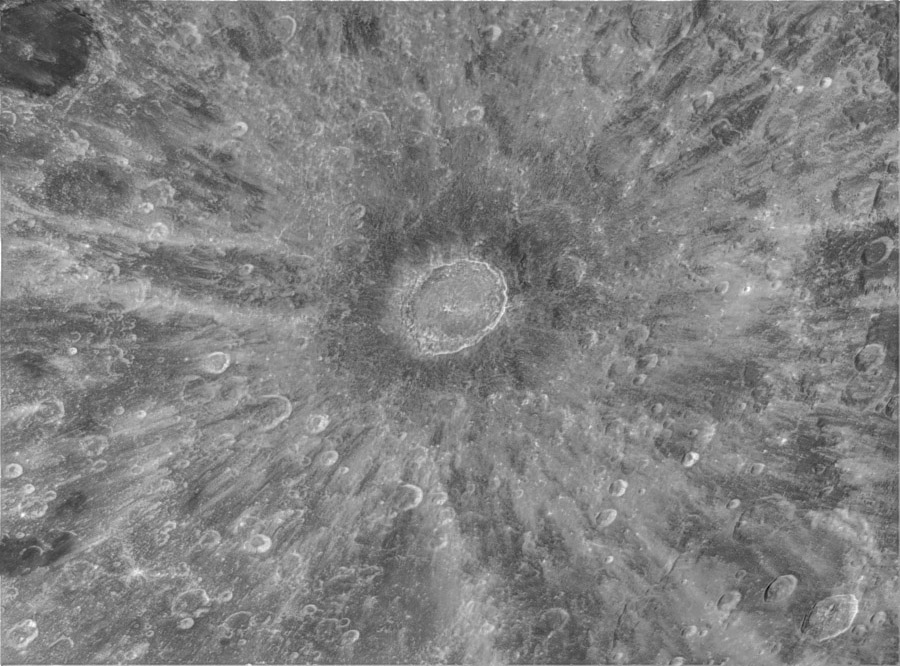Difference between revisions of "December 14, 2011"
| Line 14: | Line 14: | ||
<br /> | <br /> | ||
<strong>Related Links</strong><br /> | <strong>Related Links</strong><br /> | ||
| − | Rükl plate [https://the-moon.us/wiki/R%C3% | + | Rükl plate [https://the-moon.us/wiki/R%C3%BCkl_64 64]<br /> |
<br /> | <br /> | ||
<p><b>Yesterday's LPOD:</b> [[December 13, 2011|Little Dots, Big Story]] </p> | <p><b>Yesterday's LPOD:</b> [[December 13, 2011|Little Dots, Big Story]] </p> | ||
Revision as of 17:44, 13 October 2018
Sorting Out the Rays

image by Philippe Tosi, Pic du Midi observatory, France
High Dynamic Range (HDR) softwarecombines multiple exposure images to highlight detail across the whole brightness range. Here Philippe applies it to a full Moon view of Tycho and its dark collar. This technique appears to bring out the individual raylets that often get visually fused into a confusing bright nexus. And it shows darker materials underlying the rays on the right side of the image. HDR imaging may be a new approach to detail mapping and ultimately characterizing and classifying lunar ray systems.
Chuck Wood
Technical Details
October, 2011. C.14 with Skynyx 2.1 M + IR filter 742nm. HDR Soft Photomatix 4 developped by HDRsoft Society, fusion of 3 expositions 0.08; 0.16 and 0.32 sec.
Related Links
Rükl plate 64
Yesterday's LPOD: Little Dots, Big Story
Tomorrow's LPOD: Tracing Back the Rays
COMMENTS?
Register, Log in, and join in the comments.



